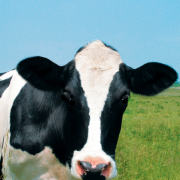Family culture keeps Jalna churning
It’s all white coats, hairnets and gumboots along the production line at Jalna Dairy Foods in Thomastown, Victoria.
It could be a laboratory, except for the smell of warm milk, damp terracotta-coloured floors and lofty ceilings.
Jalna is one of the largest producers of yoghurt in Australia, handling 11 per cent of the market share. That slice of the industry makes for $90 million per year in turnover and a workforce of 80.
Managing Director Campbell McLaren strides through the sprawling plant, doing his best to greet his staff over the waves of noise – through some humid 45 degree rooms and blast chillers with arctic temperatures.
Making yoghurt is tricky; it’s a living thing and can be temperamental. If it were easy then a local family yoghurt business of this size wouldn’t be so rare. The heating and cooling alone costs $100,000 per month and some of the machinery looks like it would be more at home in a car production line than moving around pots of yoghurt.
Making this stuff is a race against the expiration date, which is both a blessing and a curse.
Overseas competitors find it hard to sell yoghurt in Australia without air-freighting it and stuffing it full of preservatives, so local producers have a free run at the marketplace. The problem is that producers and supermarkets are handcuffed to each other in a constant struggle for profits. Not that either side is complaining – the public can’t seem to get enough.
Next door is Jalna’s own plastics factory. They exclusively supply themselves with yoghurt tubs and lids and, because they don’t sell them to competitors, it’s a saver rather than an earner.
No white coats in the plastics factory, instead workers tend to the huge German machines that pour red, green or blue melted plastic into moulds.
It’s an oddly beautiful process of stamping, cutting, inflating, cooling and sticking. The final process goes into huge boxes stacked to the ceiling – ready to be taken next door to meet its temperamental tenant.
The McLaren family bought the business in 1978 for $350,000 off Polish migrant Simon Goldman, who’d been making cottage cheese, sour cream and one variety of yoghurt under the name ‘Jalna’ in Preston since 1959.
The sale process allowed for a three-month takeover, where Simon taught the new owners how to make the products and run the factory. It was a 24-year-old Campbell who found himself under Goldman’s wing.
Campbell’s father, Bruce, had every intention of playing a role in the business he’d bought but several months after buying it, he had a major aorta artery burst. He survived, but he and his wife had to leave their sons to take charge. Campbell took control of the product and the 12 workers while his older brother, Stuart, worked on the sales and accounts.
But as you’d expect after only a three-month apprenticeship, Campbell was struggling.
“I was a nervous wreck. My father had put all his money in this place and borrowed the rest against the family home,” he says.
Campbell's lifeline came in the form of a Yugoslavian cheesemaker by the name of Steve, who worked for a competitor and wanted to shift businesses.
Steve told them what equipment to buy and how to update the factory. He was their most important employee – for a while.
Twelve months later Campbell was out in the truck making deliveries when he called the factory to check in.
“Everything alright in there?” he asked.
“Um, not really. Steve’s just attacked his wife in the factory with the pressure cooker,” was the reply.
*Stunned silence*
That day in 1979 was the last time Steve – the helpful but dangerous cheesemaker – worked for Jalna.
Campbell hired Howard Nurse as the replacement and he’s now been head of operations for 33 years.
Dealing with Australia’s supermarket giants has been a constant source of tension. Coles and Woolworths are responsible for 80 per cent of Jalna’s product, which makes Campbell more than a bit uncomfortable.
But Jalna grew into the role of key supplier. It’s a reliable and high quality producer. Having its own plastics factory means that when Coles and Woolworths call, Jalna is always able to answer. And even though the retailers have plenty of aces up their sleeves, Campbell has done his best not to let them get the better of him.
He says one of the best things he’s done is hire someone to handle the retailers and Costa Tsaconas has been that man for 18 years.
And it might be that his troubles on that front may be coming to an end with a new code of conduct coming into action. It seeks to make sure retailers don’t use their power to push around small- to medium-sized enterprises anymore (Woolworths, Coles agree to a new code of conduct, November 18).
Jalna is owned through a family trust, but it’s clear that Campbell is in charge. Stuart retired at 50 and, like his father, died young at just 63 last year. Stuart left behind two daughters, Kate and Candace, neither of which works in the business but there may be a successor in Campbell’s two sons, Wes (23) and Lachie (21).
Lachie is studying real estate and Wes looks to be the next McLaren at the helm. He’s finished his banking, finance and marketing degree and is looking for work outside the company before coming back a few years down the track.
Campbell wants the business to stay in the family and it almost certainly will. But who knows – maybe they could sell it and buy another small business. In 35 years, Wes and Lachie could be making money doing something completely different. After all, Campbell was the first in his family to make a batch of yoghurt.















